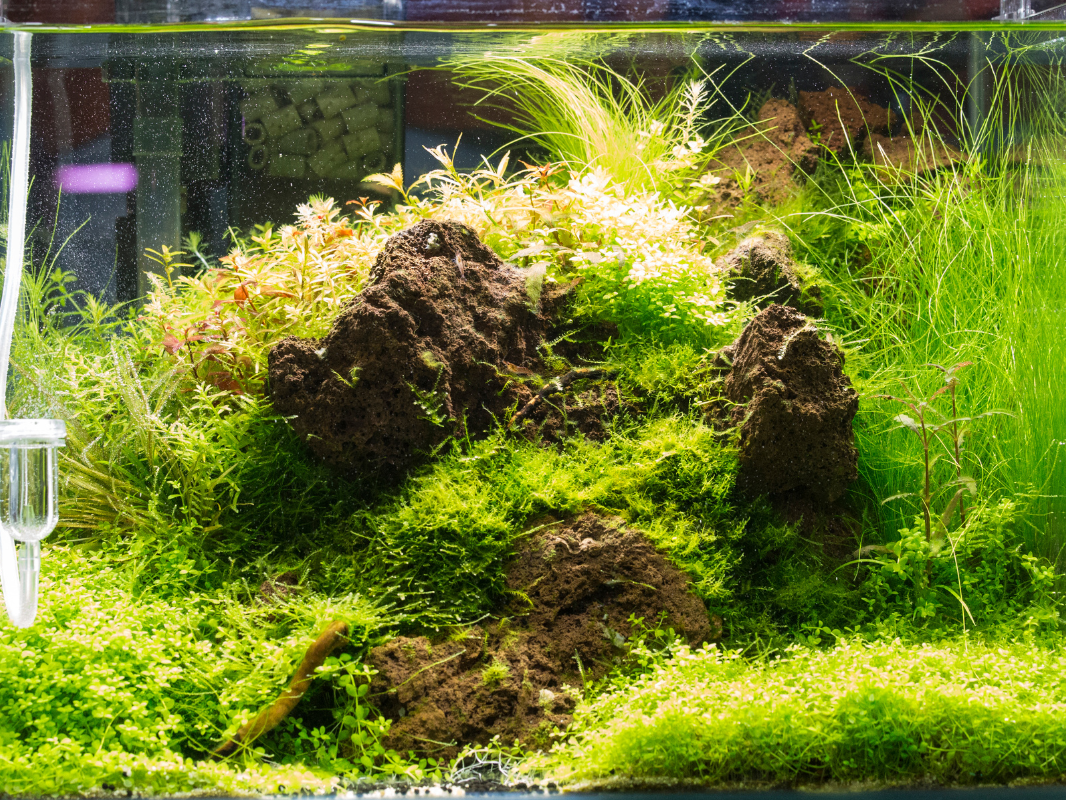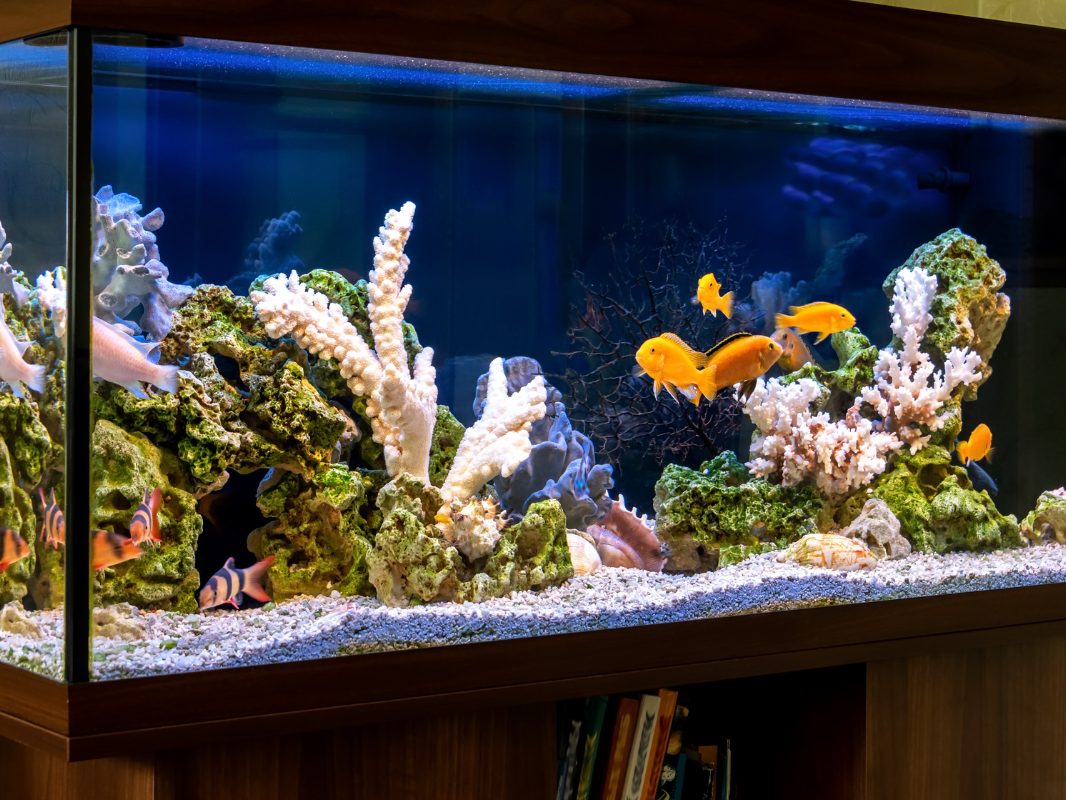Freshwater aquariums are a window into an underwater world, a slice of aquatic life that adds both beauty and intrigue to our homes. But setting up a successful freshwater aquarium involves more than just filling a tank with water and fish. It’s about understanding the delicate balance of an aquatic ecosystem, the genetics of the fish we choose, and the diseases that can threaten their well-being. This article dives into the essentials of freshwater aquarium setup, fish genetics, and disease prevention, tailored for the millennial aquarist who seeks a personal and engaging approach to fish care.
Basics of Aquarium Setup
Setting up a freshwater aquarium is an exciting journey, but it requires careful planning and consideration. Here’s what you need to know:
Choosing the Right Tank and Equipment
- Size Matters: The size of your tank should reflect the type and number of fish you plan to keep.
- Filtration is Key: A good filtration system keeps the water clean and free of harmful substances.
Register for our latest in-depth reviews and product round-ups from the experts
Enter your email address below to receive our twice monthly reviews emails.
By entering your details, you are agreeing to our terms and conditions and privacy policy. You can unsubscribe at any time.
Water Quality and Filtration Systems
- Regular Testing: Regularly test your water for pH, ammonia, nitrites, and nitrates.
- Filtration Types: Understand the different types of filters available and choose one that suits your tank’s needs.
Lighting and Temperature Control
- Appropriate Lighting: Adequate lighting is essential for the health of your fish and any live plants in your aquarium.
- Consistent Temperature: Fish are sensitive to temperature changes, so a reliable heater is necessary.
Fish Genetics in Freshwater Aquariums
Understanding the genetics of your fish is not just for breeders. It’s about ensuring the health and vitality of your aquatic pets.
Role of Genetics in Fish Health and Behavior
- Genetic Health: Some fish are prone to genetic health issues; knowing these can help in selecting healthier fish.
- Behavioral Traits: Genetics can influence the behavior of fish, affecting their compatibility with other species.
Common Genetic Traits in Popular Freshwater Species
- Color Variations: Many species have been bred for specific color patterns, which can be linked to genetic traits.
- Size and Growth Rates: Genetics can determine the potential size and growth rate of your fish.
Breeding and Genetic Diversity
- Selective Breeding: Responsible breeding can enhance desirable traits while minimizing health issues.
- Maintaining Diversity: Genetic diversity is crucial for the health of fish populations.
Common Diseases in Freshwater Aquarium Fish
Identifying and understanding common diseases in freshwater fish is crucial for any aquarist.
Identifying Signs of Illness
- Behavioral Changes: Watch for changes in swimming patterns or feeding habits.
- Physical Symptoms: Look for visible signs like spots, lesions, or changes in body shape.
Ich (White Spot Disease)
- Symptoms: Small, white spots resembling grains of salt on the fish’s body.
- Treatment: Raise the water temperature and use over-the-counter treatments.
Fin and Tail Rot
- Symptoms: Frayed or disintegrating fins or tail.
- Treatment: Improve water quality and consider antibacterial treatments.
Swim Bladder Disease
- Symptoms: Difficulty in maintaining buoyancy, swimming upside down or at an angle.
- Treatment: Adjust diet and feeding practices, and ensure optimal water conditions.
Tables with Relevant Facts
| Disease | Symptoms | Treatment |
| Ich | White spots, scratching against objects | Temperature adjustment, medication |
| Fin and Tail Rot | Frayed fins, redness | Water quality improvement, antibacterial meds |
| Swim Bladder Disease | Buoyancy issues, abnormal swimming | Diet adjustment, water condition optimization |
Advanced Care and FAQs for Freshwater Aquariums
Continuing our journey into the world of freshwater aquariums, we now focus on advanced care techniques, disease prevention, and answers to some frequently asked questions. This section is designed to deepen your understanding and enhance your skills in maintaining a thriving aquatic environment.
Preventing Diseases in Your Aquarium
A proactive approach to disease prevention can save you a lot of trouble down the line. Here’s how to keep your aquatic environment healthy:
Regular Maintenance and Water Quality Management
- Consistent Cleaning: Regular cleaning of the tank and water changes are crucial.
- Monitoring Water Parameters: Keep a close eye on pH, ammonia, nitrite, and nitrate levels.
Quarantine Procedures for New Fish
- Isolation Tanks: Use a quarantine tank for new arrivals to prevent the spread of diseases.
- Observation Period: Monitor new fish for a few weeks before introducing them to the main tank.
Diet and Nutrition for Disease Prevention
- Balanced Diet: Feed your fish a varied diet to ensure they get all necessary nutrients.
- Avoid Overfeeding: Overfeeding can lead to poor water quality and health issues.
Treating Common Fish Diseases
Sometimes, despite our best efforts, fish get sick. Knowing how to treat common diseases is an essential skill for any aquarist.
Over-the-Counter Treatments and Remedies
- Medicated Foods: Use medicated foods for internal infections.
- Water Treatments: There are various treatments available for different diseases.
When to Consult a Veterinarian
- Severe Symptoms: If the disease progresses or the fish’s condition worsens, seek professional help.
- Unidentified Diseases: If you’re unsure about the disease or treatment, consult a vet.
Recovery and Aftercare
- Post-Treatment Care: Monitor the fish’s recovery and gradually reintroduce them to the main tank.
- Prevent Recurrence: Adjust tank conditions and care routines to prevent future outbreaks.
Advanced Topics in Fish Care and Genetics
Delving deeper into fish care, let’s explore some advanced topics that can enhance your aquarium experience.
Genetic Engineering and Selective Breeding
- Selective Breeding Practices: Understand the ethics and methods of selective breeding.
- Genetic Modifications: Be aware of the implications of genetic modifications in fish.
Ethical Considerations in Fish Genetics
- Responsible Breeding: Ensure that breeding practices do not harm the fish or lead to long-term health issues.
- Conservation: Consider the impact of breeding on natural fish populations and biodiversity.
Tables with Advanced Care Tips
| Topic | Tips | Benefits |
| Water Quality | Regular testing, proper filtration | Healthier fish, clearer water |
| Nutrition | Varied diet, controlled feeding | Better growth, reduced disease risk |
| Breeding | Ethical practices, genetic diversity | Healthier offspring, sustainable populations |
FAQs: Freshwater Aquarium Setup and Fish Health
Let’s address some common questions that aquarists often have:
- Unusual swimming patterns, loss of appetite, visible spots or lesions.
- Genetics can influence susceptibility to certain diseases and overall health.
- Regular tank maintenance, proper feeding, and quarantining new fish.
Monte Levin
Monte's journey in fish care started at a young age, fostering a connection with underwater ecosystems that goes beyond the surface. As our resident expert, he's dedicated to sharing his expertise and ensuring that every fish owner, from beginners to seasoned hobbyists, has the tools and knowledge needed to create a thriving aquatic environment.




